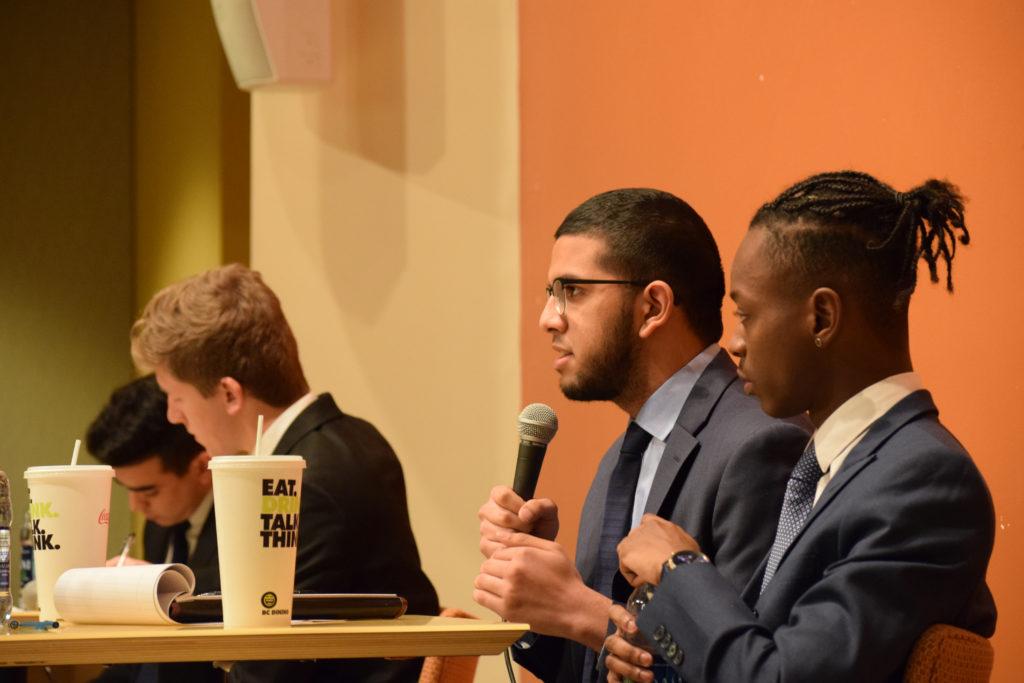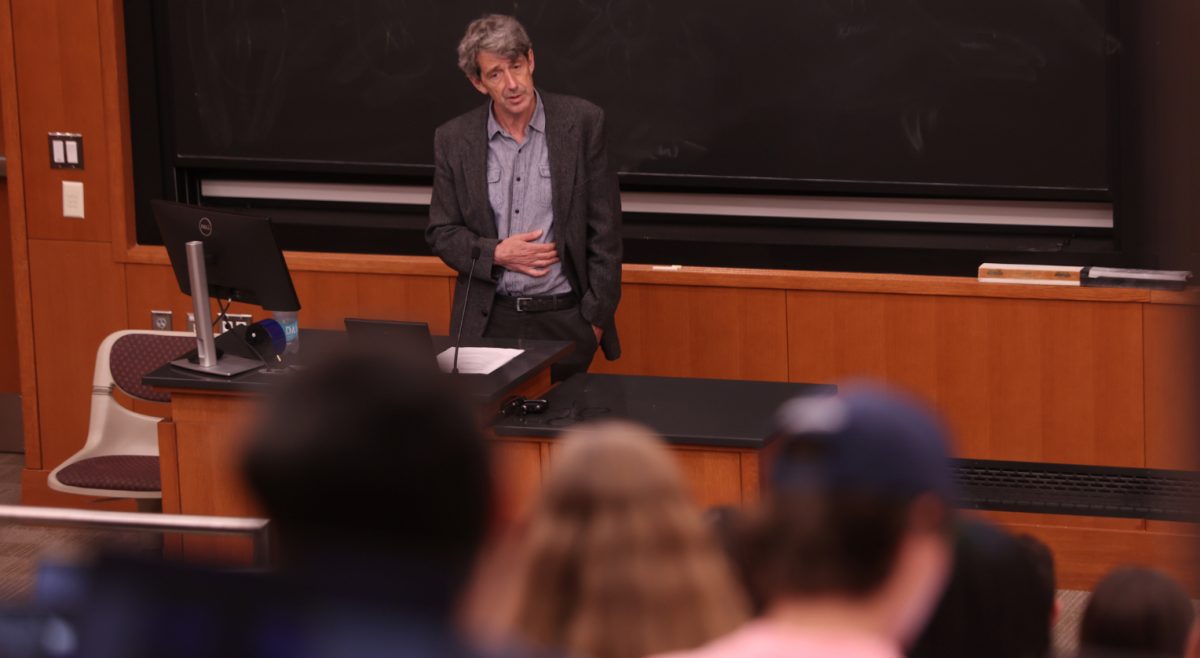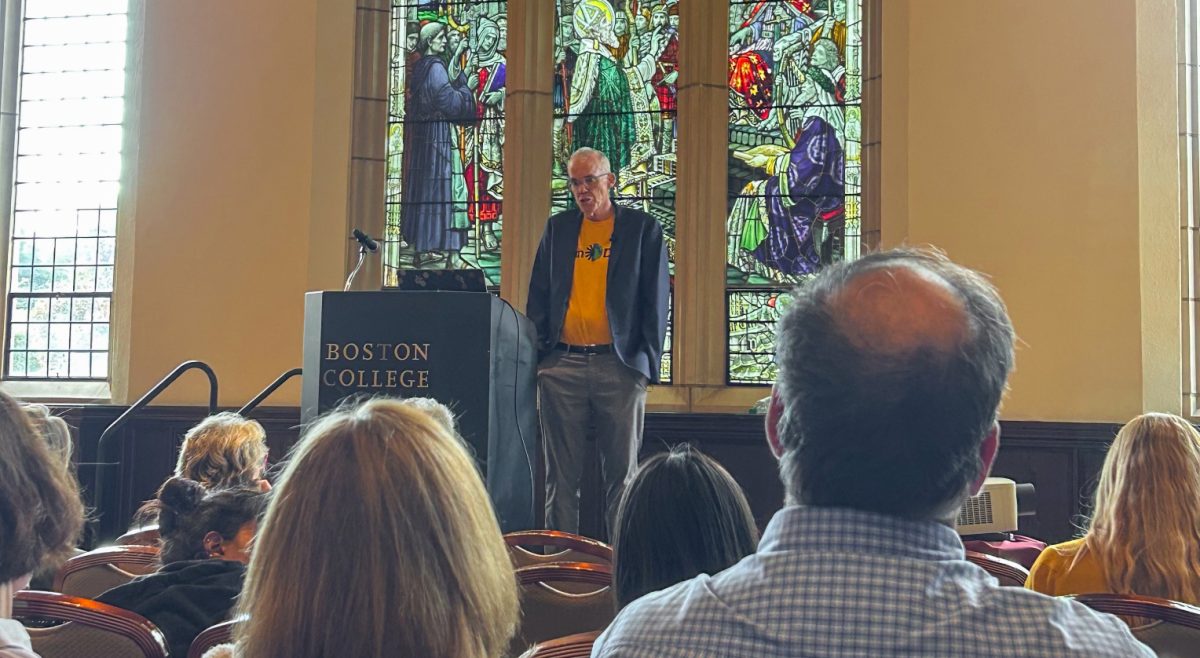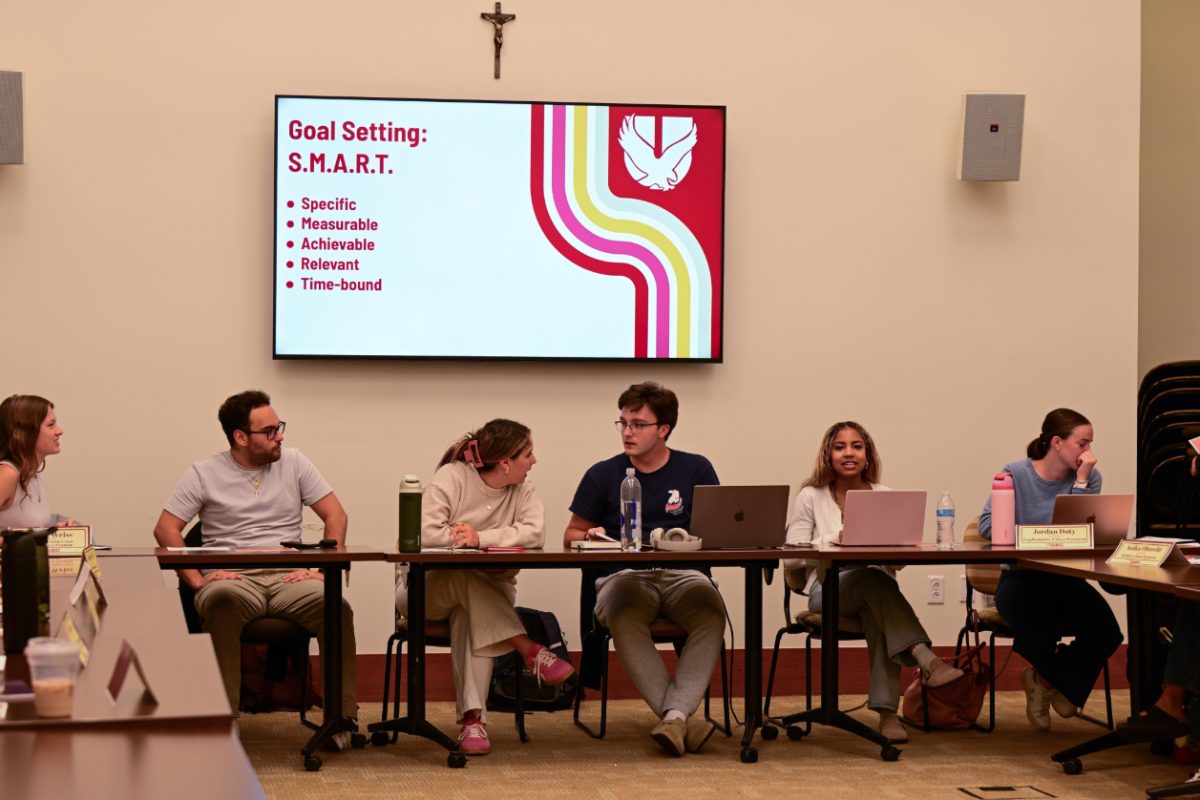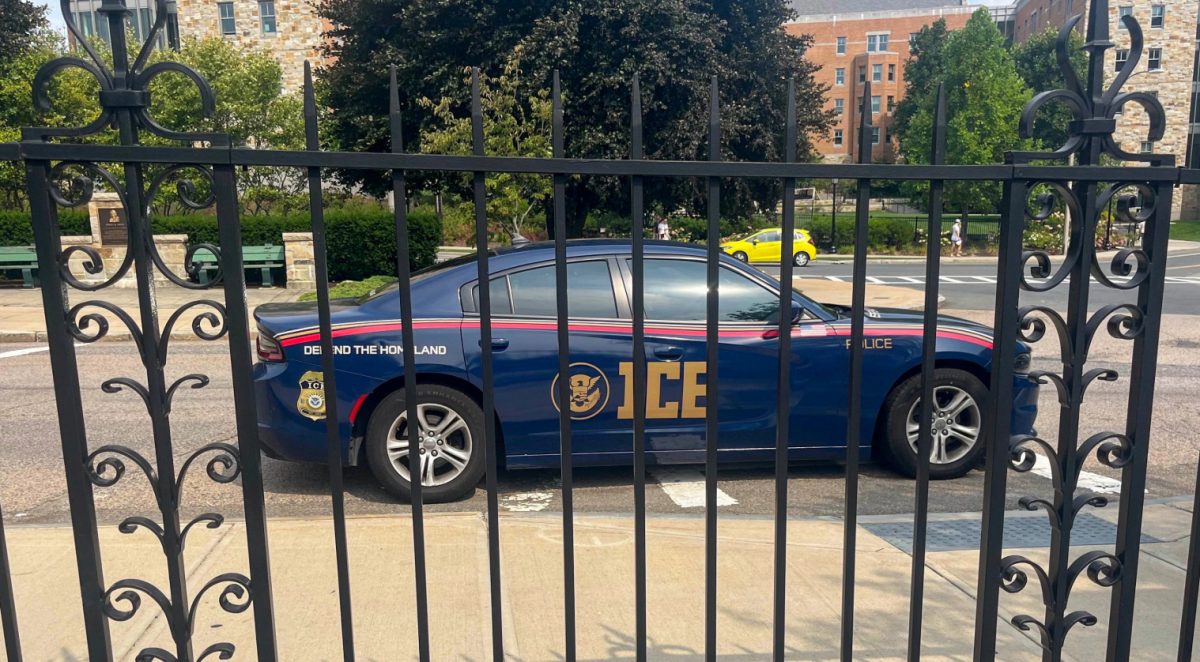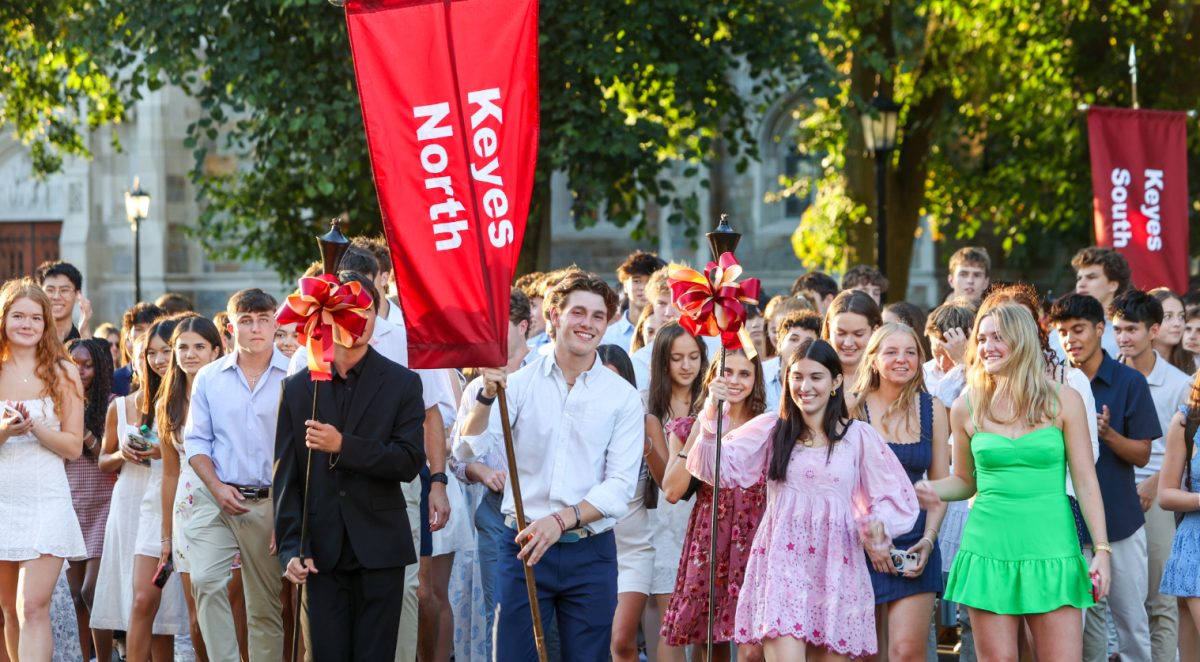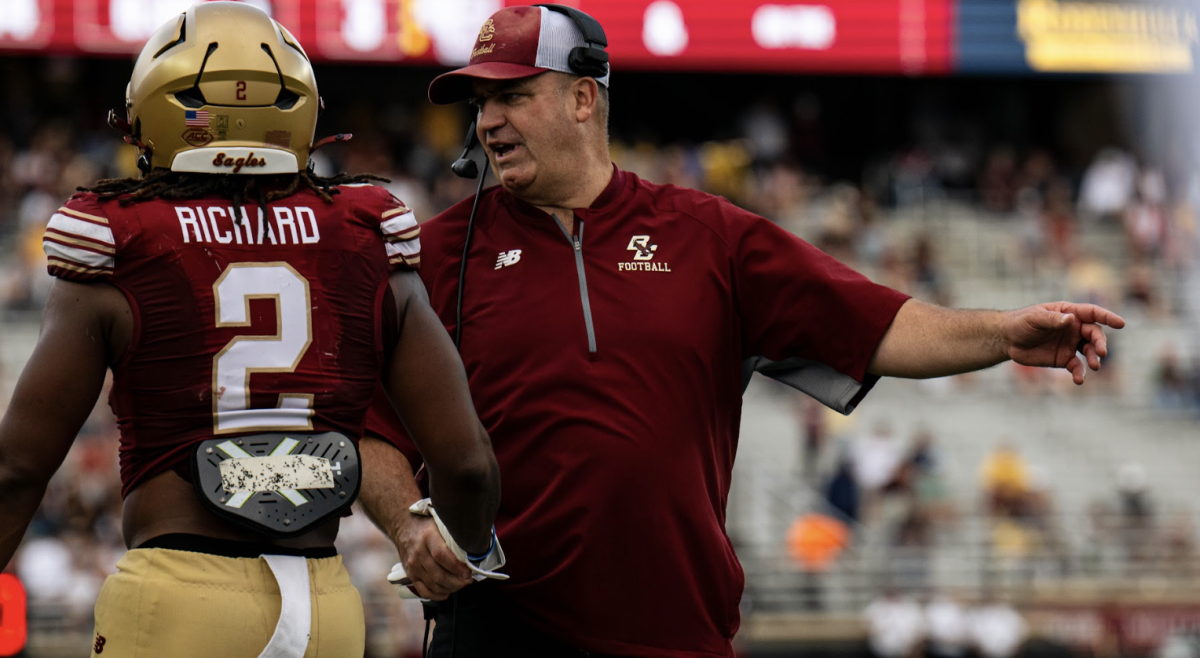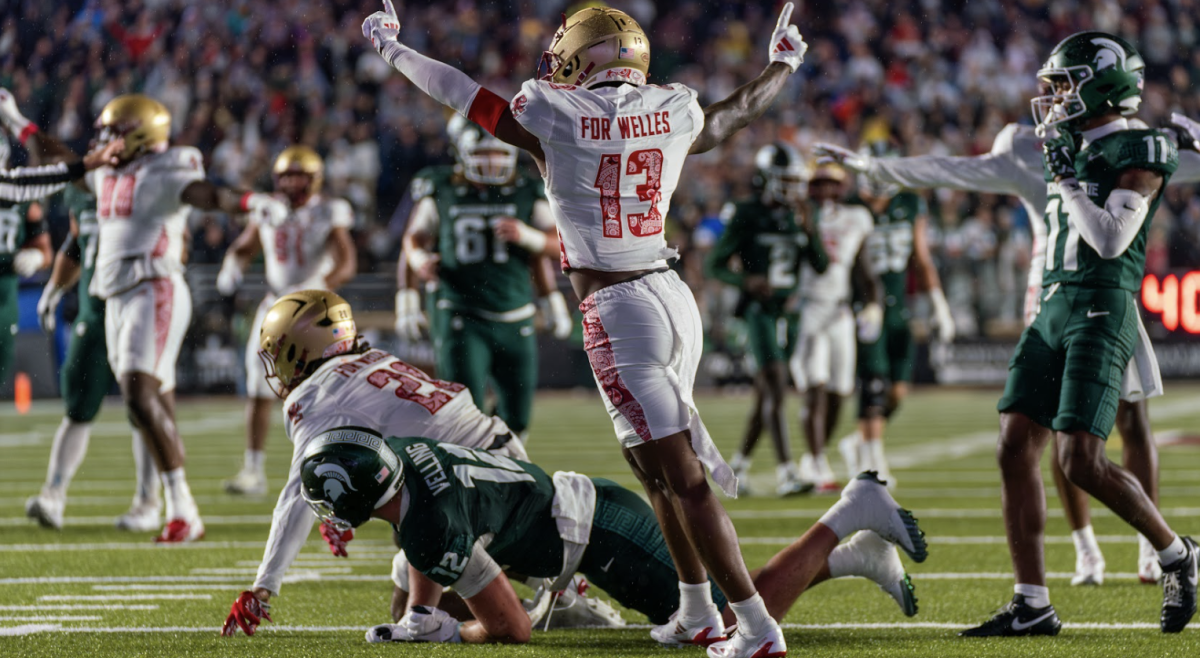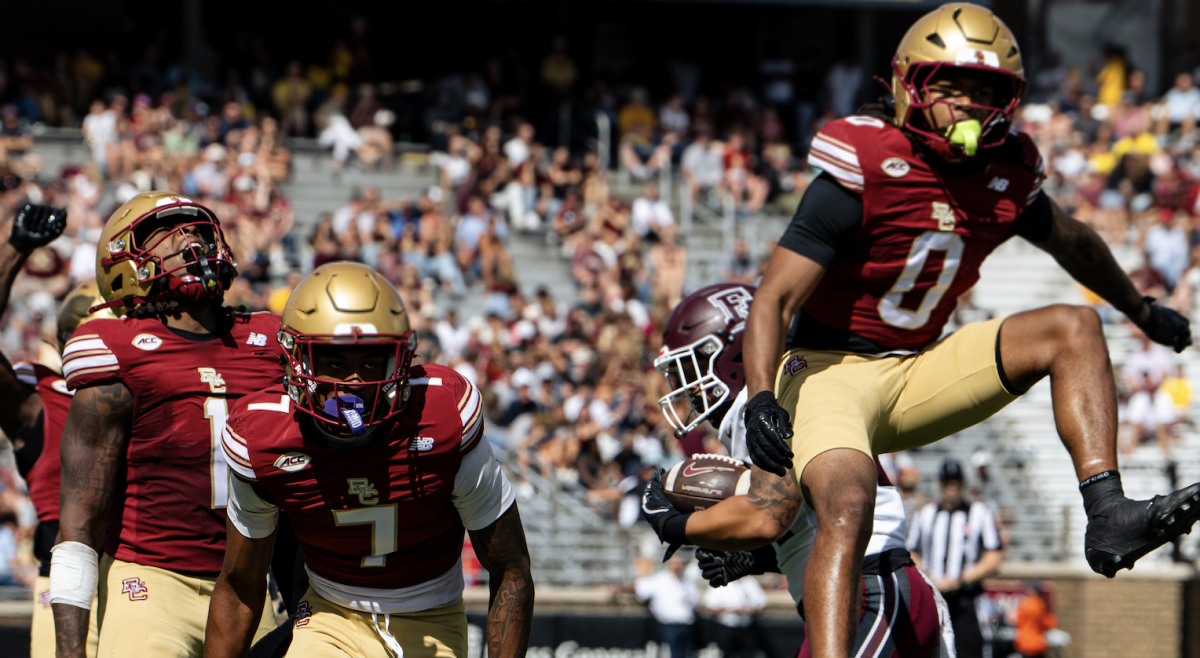The two teams running for Undergraduate Government of Boston College president and executive vice president faced off in the final debate of the campaign Sunday night. The two teams are Taraun Frontis, CSOM ’19, and Aneeb Sheikh, MCAS ’20; and Reed Piercey, MCAS ’19, and Ignacio Fletcher, MCAS ’20. Voting will take place on Thursday.
The candidates were asked to respond to a variety of questions, ranging from issues of diversity and inclusion to discussing the challenges they would face in office if elected. One component of both teams’ platforms, the establishment of a student center, was not discussed during the debate.
In elaborating on the ideas his team would present during its first meeting with the Board of Trustees, Frontis stressed a review of the efficacy of DiversityEdu module, which will be implemented next fall. Sheikh plans to hold the University accountable to the letter it released following the Silence is Still Violence march, specifically in regards to a specific timeline and funding for the various commitments made in the letter.
Piercey mentioned holding the BC administration responsible for implementing the Student Experience Survey—this would be the first comprehensive collection of data on AHANA and LGBTQ+ students at BC. This data will be used to help bolster UGBC claims for diversity and inclusion. Piercey also discussed his plan for the Eagle Exchange Program, which would operate as a used market in which students buy and sell items, such as books and clothes.
Frontis went on to highlight his team’s proposal for a Red Square, a space where students can have sanctioned demonstrations and not have to worry about obtaining permits from the University. He also explained the role of UGBC in on-campus activism.
“I would say that as UGBC being a student activism board, we should be directly involved in these incidents,” he said.
Piercey also argued UGBC should play an integral role in activism on campus.
“We think that as much as challenging the administration is an important part of what we do, UGBC also has to challenge the student body to promote not just top-down change from the administration, but bottom-up change as well,” he said.
He also said his team decided not to include the Red Square idea in its platform, due to concerns over accountability in expressing freedom of speech without permitting hate speech.
One question, prefaced by the statement that 16 percent of BC students come from households that earn more than $600,000, asked about ensuring a level playing field in terms of opportunities for all students.
Frontis believes that expanding Montserrat to include a division in all four schools would be an important step toward more expansive resources for low-income students.
“As a low-income, first-generation student myself, I would like to emphasize our need for increasing resources for departments like Learning to Learn and Montserrat,” he said. “One of the policies we came up with was having a Montserrat department in every school. For example, as a CSOM student, we have a lot of customized books and software … and because of my low-income status, I’m not able to get all those materials.”
Piercey emphasized that it is vital to expand the financial aid resources of Montserrat students to include several charges not typically covered by BC.
“A lot of the time they’re not able to afford Boston College’s health insurance program … so we’d like to advocate for the inclusion of that,” Piercey said. “The second thing is that we also think we should advocate for the inclusion of laundry money, another smaller day-to-day charge.”
In discussing a potential challenge to transitioning to office if elected, Piercey talked about the struggle of the general disorganization of UGBC.
“There’s no centralized environment to be updated on the policies and initiatives that the previous administration has taken on, the exact steps, and what’s to be done next,” he said.
Frontis and Sheikh highlighted transparency and student-centered change as priorities of their campaign.
“We have a lot of initiatives we want to work on, a lot of ideas that we want to implement, but how do we prioritize those initiatives?” Sheikh said. “So hopefully there’s a conversation where we work with student representatives in the [Student Assembly], so we are being representative of the issues that the study body cares about.”
Prompted to give minute and a half-long closing statements, Frontis and Sheikh spoke first.
“We are able to make tangible change because we have the experience to do so,” Frontis said. “We know who to go to, who to contact, because we have already created these relationships … and that’s why [our platform is] 13 pages, because we have specific steps for each process.”
“The reason why we should be your next president and vice president of UGBC is because we have the experience and the relationships to enact tangible change,” Sheikh said.
Fletcher and Piercey expressed a desire to serve the entire student body if elected.
“We have been working hard, but we have not been able to grab everyone’s attention here,” Fletcher said. “We have not been able to make everyone care. That is our goal.”
“We’re running to take on events that serve and benefit everyone, so we can draw more people into our mission,” Piercey said. “So that we can challenge the complacency that allows events like last semester to happen. We want to be that bridge that connects those that already care with those that have the potential to care, and become better allies.”
Featured Image by Katie Genirs / Asst. Photo Editor

